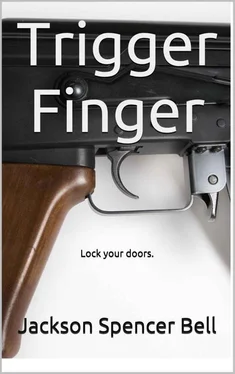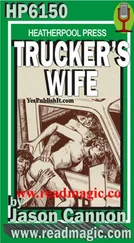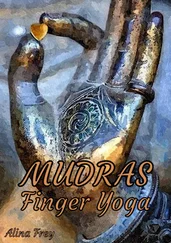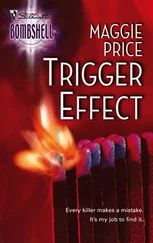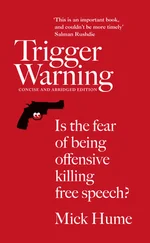I asked him about it. I was 14, him 18, and I said, “Bobby. Bobby, Bobby, Bobby. What the hell, man?”
We were drinking beer on the back porch. Mom lay in the living room, passed out on the couch, while Kate studied at the dining room table. I didn’t know where Dad had gone. The hospital, I assumed. In my memories of childhood, my father is always something of an extra; he made so few appearances, and they were of such short duration. But he had evidently made a trip to the store at some point, because we’d found beer in the fridge.
I remember Bobby shrugging in the fickle glow of the Tiki Torch we had planted in the grass and lit. In early May, the mosquitoes had yet to arrive in force, but we couldn’t wait for full-fledged summer. We wore denim shorts and our Guns & Roses tee shirts. But for the difference in height, we matched.
“I want to serve my country,” he said. “No big deal. You ought to consider it, too, when you get old enough.”
“Yeah, but… the Marines?”
“The few. The proud.”
“You always said the Army,” I protested. “You always said you’d join the Army so you could get stationed at Bragg and be closer to Kate for her last year of school. The nearest Marine base is clear over on the ass end of the state!”
I didn’t relish the idea of him leaving. On mornings when he slept in and Kate and I ended up in the kitchen at the same time, a silence always came over us as we munched our cereal or ate whatever Kate had cooked up in the skillet. We understood that soon, Bobby would leave. And it would always be like this—silent, something missing. We had comforted ourselves by saying he wouldn’t go far, but we understood now that yes, he would. A five-hour drive to Camp Lejeune was the best we could hope for.
“The Marines look sharp,” he said. “Those uniforms are bodacious; I mean, have you seen those dress blues? And Marines are bad ass . The Russians are scared shitless of Marines, man. Everybody’s scared of Marines.”
“What’s wrong with the Army?”
He shrugged again and took a drink. I had noticed that when I asked Bobby something uncomfortable, he always raised his bottle to his mouth. Whatever he was drinking at any given time, he had to pour something down the hatch before he could answer.
“Nothing,” he said. “I just wanted to join the Marines, that’s all. Why are you suddenly so gung-ho about the Army? Hell, man, it’s not like they could promise me Fort Bragg. They have bases all over the world. For all you know, they could send me to Korea.”
“It’s just… weird.”
“No it’s not.”
Silence. Drink, drink, drink, two boys too young to be holding beers but big, fat doing it anyway.
“Does it have anything to do with Ruby?” I asked.
“Who’s Ruby?”
“That lady at the flea market in October. You know.”
“The one that ran us out of her trailer? The one that smelled like an ashtray?”
“Yeah.”
Before he responded, he took another drink.
“Absolutely not,” he said. “You’ve got to be crazy.”
And maybe so. But the idea that Bobby put stock in something that someone like Ruby said stuck in my mind and wouldn’t leave me alone. She had spooked me when we consulted her, because of the things she’d said, the way she’d acted. Out of one side of his mouth, Bobby told me she was dumbass trailer trash, probably so hung over from her acid trips in the ’60s that she could hardly see straight. I shouldn’t worry about anything she said, dumbass trailer trash like that. Let’s go eat.
And then he joined the Marines instead of the Army. This bugged the hell out of me and so the Saturday immediately following our beer-drenched exchange on the deck, I grabbed Mom’s keys and hopped in the Cadillac. I didn’t have a license then, but that hadn’t seemed to deter Bobby when he was my age, and so I wouldn’t let it deter me, either. I fired up the motor and pointed the bumper in the direction of the flea market.
I found Ruby there tending her table. Her husband—Chet, Chester, Chuck, something that started with a “ch” sound—was gone. Lying in a hospital somewhere with a machine breathing for him, probably, the end of a road paved with cigarettes. Ruby sat in a chair alone, but when she saw me approaching, she flicked her cigarette on the ground, stamped it out and abruptly retreated into the trailer. I marched right up there and knocked on the storm door. She didn’t answer.
“It’s Kevin Swanson,” I said. “I need to talk to you.”
“Go on! You get on out of here!”
“Not until I talk to you.”
“You go on or I’m calling the police! You’re trespassing!”
I snorted. “You don’t have a phone in there! And anyway, I’m a customer! I want to get my palm read!”
“I ain’t reading your palm, boy.”
“I got a hundred dollars.”
Pause. I thought that got her attention, and the inner door opened. Ruby, old and wizened and looking like Yoda with dyed-blond hair, looked down at me through the Plexiglass.
“I wouldn’t read your palm again if you had a thousand.”
I blinked at her.
“Why’d you tell my brother not to join the Army?”
“Because he’ll die. Get himself blown away.”
She had given Bobby his money back. Our encounter had produced absolutely no profit for her whatsoever. And now she stood on the other side of the storm door, regarding me as one would a copperhead coiled up on his stoop. I was fourteen years old. And short for my age.
“What about me?”
“What about you?”
“You dropped my hand. You told me to never get married, you told me to always live alone. Why?”
Her face tightened. I didn’t think it possible for her thin and wrinkled lips to compress any more than they already had, but they did. She pressed them into a little raisin so small and compact that the bottom half of her face disappeared into it.
“What can you see about me?” I asked.
Her eyes filled with tears.
“What can you see about me?” I asked again.
“You’re bad,” she said. “You’re very, very bad. So bad.”
“Why am I bad? What do I do that makes me bad? Do I beat up my wife? Get drunk and run over one of my own kids, what ?”
“You failed ,” she said. Her voice had lowered to a whisper raspy and dry, like newspaper left in the desert sun. “You make me sick. You’re not a good person, boy. You’re not good at all.”
I felt slapped, kicked. Assaulted. I remained, in many ways, a child. Modern American children weren’t used to adults telling them they’re not good people, that they’re dark . So while her words didn’t reduce me to tears, I felt my cheeks growing red. Who did she get off saying I wasn’t a good person? Who was she to pass judgment on my character?
“You don’t know shit about me,” I growled, hands clenching into fists.
“I know more than you do,” she snapped. “And you ought to do the world a favor and go kill yourself. So go on. And don’t you never come back here.”
“This isn’t your property. It’s the flea market’s. I can go wherever I want.”
“Go. On !”
The venom in her voice drove me backwards.
“I don’t want to see your face!” She spoke in a strangled cry, like her voice had to blow something in her throat out of the way before she could say anything. “Don’t you darken my door again! Get gone!”
My eyes widened. Further away, a group of people at another table watched us. I felt their eyes all over my shoulders, the back of my head.
And Ruby’s voice rose to a scream.
“Get out of here, you lousy piece of shit!”
I stepped back. I hit Chester’s chair— Chester , I thought, his name was Chester —and knocked it into the table. A stack of Betamax tapes tumbled and fell.
Читать дальше
